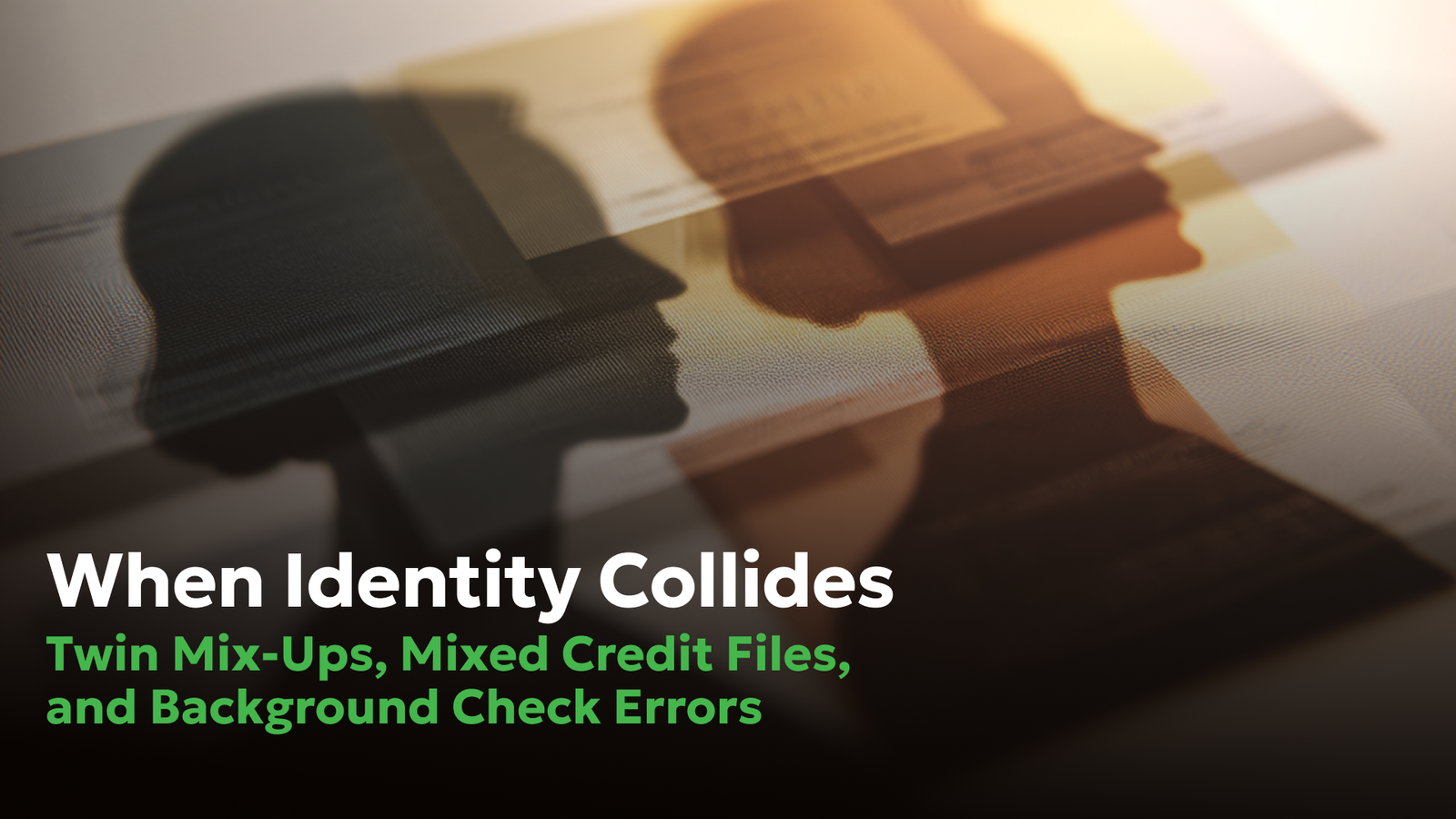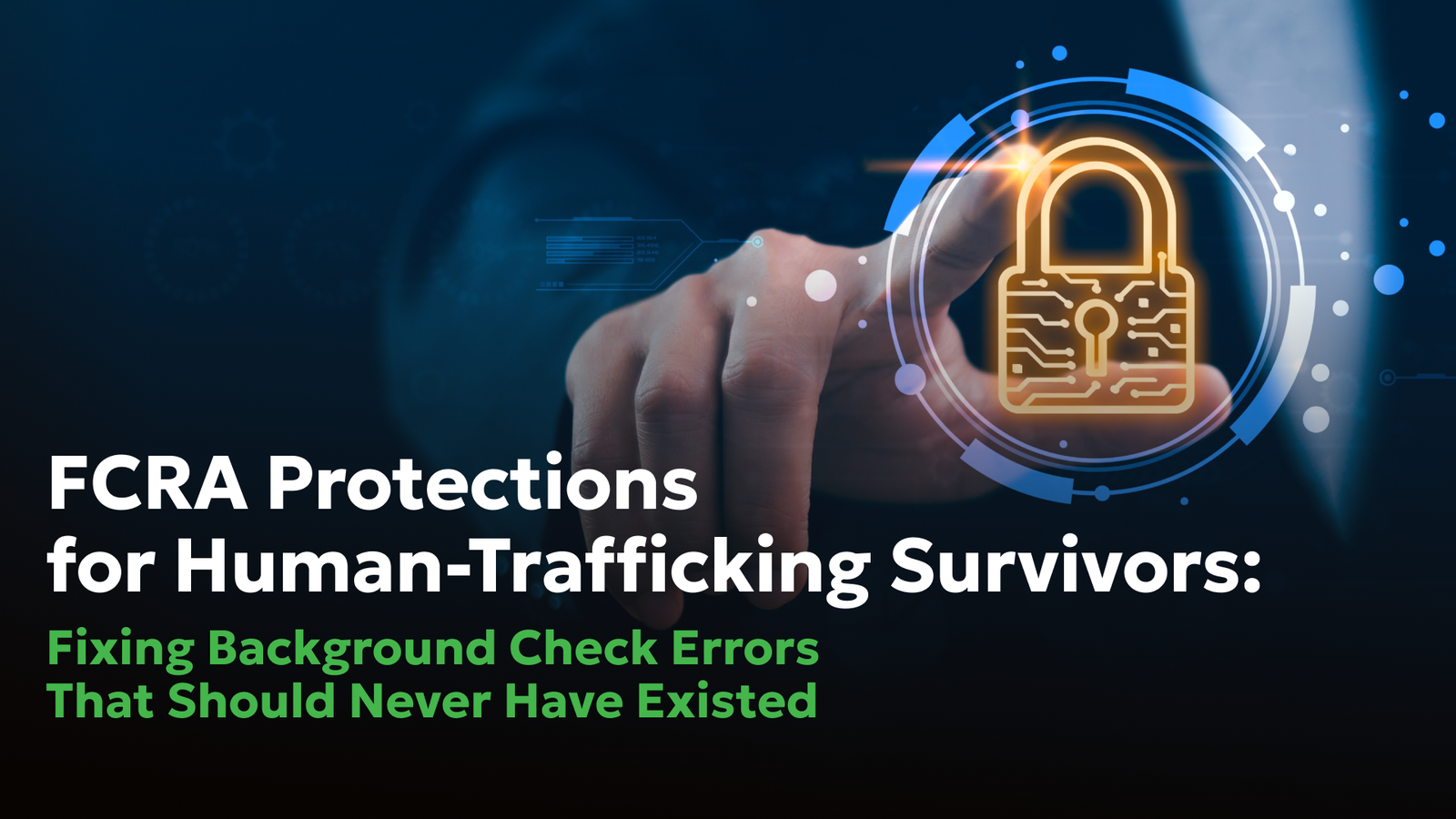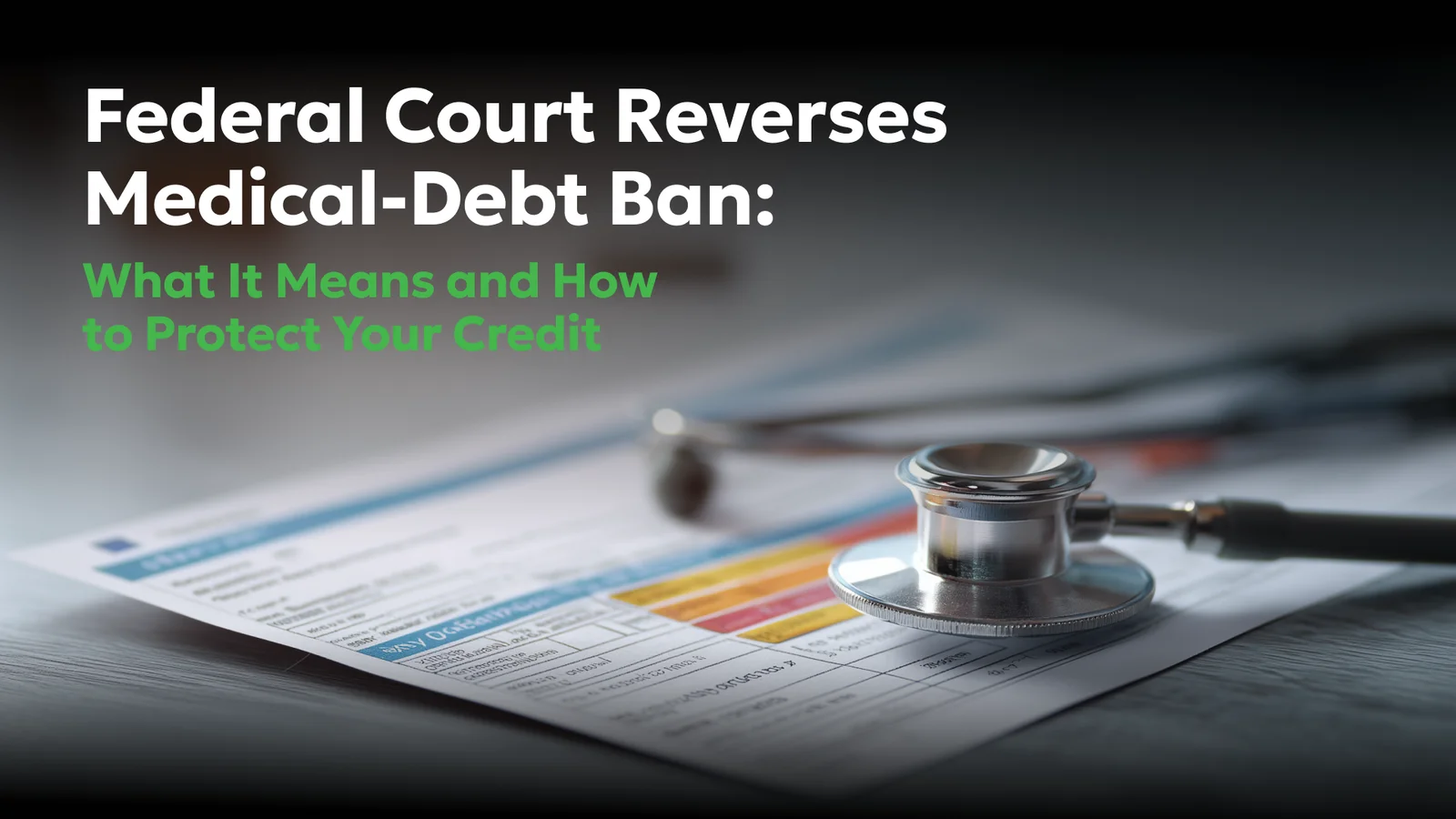False OFAC Alert on Credit Report: How to Solve Error?
- Blog
- Credit Reporting Inaccuracies
False OFAC Alert on Credit Report: How to Solve Error?

If you had the misfortune of being erroneously flagged as a terrorist on your credit report, you need to read this.
Credit and background check companies, including Equifax, Experian, and TransUnion, search for, collect, and sell your data to businesses of all kinds. By law, they must use reasonable care to ensure accurate data. When they don’t - it means big trouble. How big? Being falsely flagged as a terrorist big. Here’s how to fix it.
A false OFAC alert on your credit report - in addition to causing distress, concern, and confusion - will diminish or eliminate your financial opportunities. This article provides insight into OFAC alerts, why an OFAC alert might appear on your credit report, how to fix the error, and, if necessary, take legal action to hold those responsible accountable.
As credit report error attorneys, we see the devastating consequences that credit report and background check errors can have on a person. In addition to losing the loan, the job, the apartment, the home, the car, the insurance, or whatever opportunity you were pursuing when someone ran a credit report on you, an error like this can cause emotional, reputational, mental, and even physical harm.
What Does OFAC Stand For?
OFAC stands for Office of Foreign Assets Control. OFAC is a division of the U.S. Treasury Department and enforces economic and trade sanctions based on U.S. foreign policy and national security rules and regulations. This means OFAC can restrict transactions with specific countries, entities, and individuals it suspects are terrorists, narcotics traffickers, and other bad actors who threaten the welfare of the U.S.
Understanding the SDN List
In the aftermath of the September 11, 2001 attacks, Congress passed the USA Patriot Act in 2001. It gives the authority to maintain a sanctions list which is called the Specially Designated Nationals and Blocked Persons List, or SDN list. That watch list includes individuals, terrorists, and companies with which no U.S. person can enter into business, or they will face severe civil and criminal penalties.
The rationale behind the SDN list is that terrorists should not use the U.S. to fund their extremist activities or maintain a livelihood. The problem starts when the information in the SDN list is erroneously cross-referenced with the data that the three major Consumer Reporting Agencies (CRAs) and background check companies maintain, and their processes and procedures mix innocent people with people whose names are on the SDN list, frequently causing them tremendous harm.
Why OFAC Alerts Appear on Your Credit Report?
Misidentification
Simple misidentification is one of the most common reasons for an erroneous OFAC alert. The SDN list contains names and aliases but lacks detailed personal information. Thus, individuals with familiar or common names or those with similar names to those on the SDN list might find themselves falsely flagged.
Outdated Information
Another cause for false OFAC alerts is outdated information. If an individual was previously under investigation or mistakenly added to the list and later cleared, their information might need to be updated promptly in all systems, leading to unwarranted alerts.
Data Mismatch
Data mismatches due to errors in data entry, reporting, or technical glitches can also lead to false OFAC alerts. Minor discrepancies in personal information can erroneously link an individual to someone on the SDN list and an OFAC match, meaning you lose the opportunity just because someone didn’t use the reasonable care the FCRA requires.
How Do You Remove an Incorrect OFAC Alert from Your Credit Report?
Review Your Credit Report
A federal law called the Fair Credit Reporting Act (FCRA) gives people the right to a free copy of their credit report. The three major CRAs (Equifax, Experian, and TransUnion) will provide you with a free credit report every week. Other credit reporting agencies and background check companies will give you one free credit or background check every year. Additionally, if any institution or company makes an adverse decision about you due to something in your report, it must tell you what that information is and provide you with it.
When you get the report, review it. Review it thoroughly and carefully and identify any errors besides the OFAC mistake. Consumer law attorneys know these reports and know the right action to take based on your circumstances. When you find an error, contact Consumer Attorneys.
File a Dispute
One of the steps you can take is to file a dispute. To do this, identify yourself, identify the problems with the report, and why the OFAC on credit report is wrong. You must provide evidence that you are not on the SDN list. Send this letter and a copy of the evidence to the CRA or background check company via certified U.S. mail. Sending the letter via U.S. mail gives you a record of the dispute and preserves your right to sue. The FCRA requires these agencies to investigate disputes within 30 days, remove any inaccurate information, and inform you of the investigation results.
Contact OFAC
You must also contact OFAC to clarify your situation. Explain you had an OFAC hit on your credit report. Give them your personal information and evidence proving that you're not the individual they seek. OFAC can issue a “letter of clearance” that you can then furnish to the credit reporting agencies.
Follow Up
Follow up on your disputes and communications with both the credit bureaus and OFAC. Keep a detailed record of all correspondence.
How do You Sue for a False OFAC Alert on Your Credit Report?
There are several reasons to sue, ways to sue, and people to sue for the false OFAC alert on credit reports and background check reports.
If the credit reporting agencies fail to remove the false OFAC alert from your report despite your disputes, you might have grounds for a lawsuit under the FCRA. The FCRA also gives you the right to have an accurate credit report and sue when a CRA or the CRAs fail to correct errors upon dispute. You can also sue if the CRA or background check company or the government itself failed to adequately protect your information or if the reason the OFAC alert is on your report in the first place is the result of negligence.
Gather Evidence
Compile all evidence of the false OFAC alert and your efforts to dispute it, including correspondence with the credit bureaus and OFAC and any documents you provided as evidence of your identity.
Legal Representation
Identifying defendants and gathering evidence are not easy tasks - not when you’re going against some very big and powerful companies. That’s why consulting with an experienced consumer protection attorney - especially an OFAC credit report lawyer - is a good idea. There may be avenues for compensation and entities to sue of which you are unaware. The goal of a lawsuit, especially a false hit OFAC lawsuit, is to get you the compensation you deserve and hold accountable everyone responsible.
Contact Us for Assistance
If you’ve found or faced a false OFAC alert on your credit report, let us know immediately. We have decades of experience with helping people get justice in the credit reporting, background check error, and discrimination arenas.
Call us at 1-877-615-1725. Email us at info@consumerattorneys.com. Visit our website and chat with a live representative. Or visit our website and fill out a contact form. Explain the OFAC on credit report error, and we will help you.
Frequently Asked Questions
The U.S. Department of the Treasury runs OFAC, which is short for the Office of Foreign Assets Control. OFAC operates under the umbrella of the U.S. Treasury Office for Terrorism and Financial Intelligence. The Secretary of the Treasury appoints the director of OFAC with the advice and consent of the President. This director oversees OFAC and is responsible for implementing OFAC’s sanctions program. OFAC also coordinates with other federal agencies and departments to ensure the effective enforcement of U.S. economic and trade sanctions against suspected terrorists, drug traffickers, and other bad actors.
To find out if someone is on the OFAC list, you should use the search tool on the official website of the U.S. Treasury Department’s Office of Foreign Assets Control (OFAC). This search tool allows you to search a list called the Specially Designated Nationals (SDN) list and other sanctions lists by entering a person's name. Like any search tool, you type in someone’s name or other identifying information, and if there are any matches, the website will display those matches along with relevant details such as their aliases and the reasons for their inclusion on the list.
The three types of OFAC sanctions are: comprehensive, selective, and secondary. Comprehensive sanctions prohibit nearly all transactions with certain countries or regions, essentially cutting off economic and trade activities. Selective sanctions target specific individuals, entities, industries, or activities within a country. Secondary sanctions extend beyond primary targets, punishing foreign individuals and entities that do business with certain other entities.
There is no fixed schedule for the Office of Foreign Assets Control (OFAC) to update its Specially Designated Nationals (SDN) list. Updates can happen multiple times a week or less frequently. It depends on the circumstances and how new OFAC alerts, designations, updates, and removals will affect the United States’s security goals. If you have a false OFAC alert on your credit report, disputing it with OFAC is important. How quickly OFAC removes your name could be relevant in a lawsuit.
The OFAC list, or SDN list, includes a range of entities that the government has identified as posing or being a threat to U.S. national security, its foreign policy, or its economy. These entities might be individual people, terrorist groups, other groups, organizations, corporations, boats, planes, and other vessels. Anything or anyone associated with terrorism, narcotics trafficking, the sale of weapons of mass destruction proliferation, serious human rights abuses, and other criminal activities can be on the list. The list also covers entities from sanctioned countries and regions.


Daniel Cohen is the Founder of Consumer Attorneys. Daniel manages the firm’s branding, marketing, client intake and business development efforts. Since 2017, he is a member of the National Association of Consumer Advocates and the National Consumer Law Center. Mr. Cohen is a nationally-recognized practitioner of consumer protection law. He has a we... Read more
Related Articles




R
ONGS™You pay nothing. The law makes them pay.







